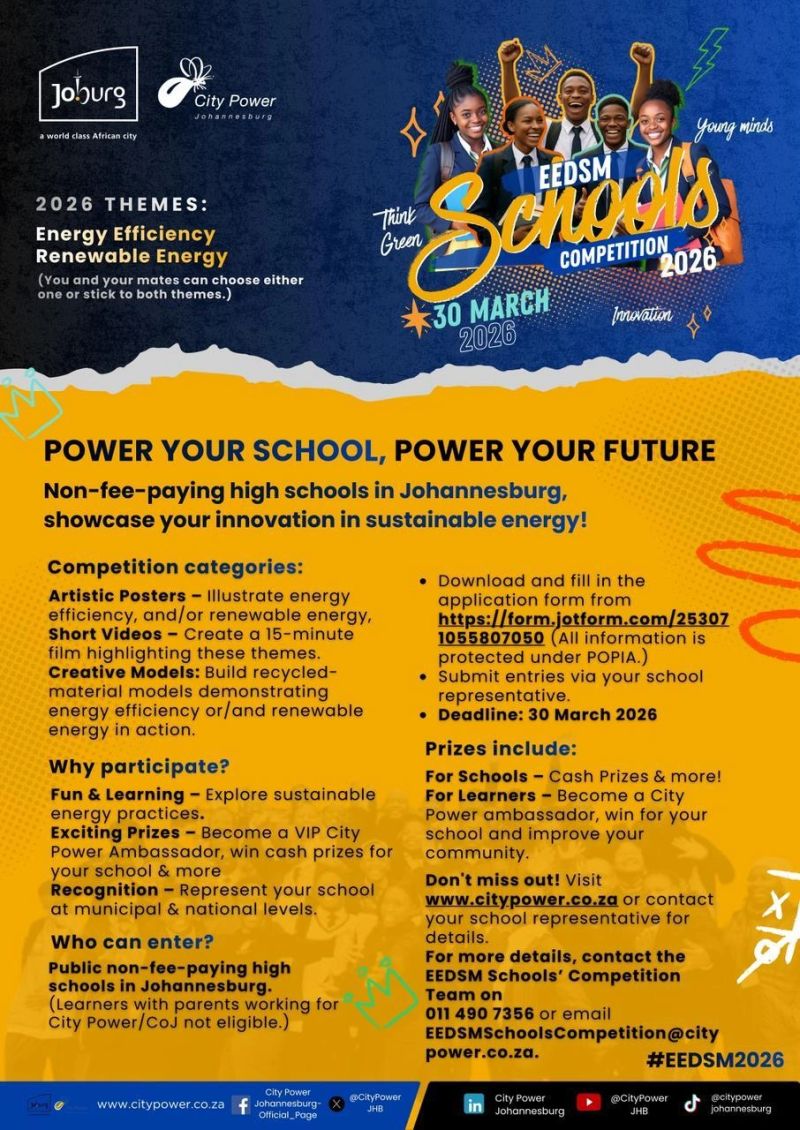By Prof. Busisiwe Mavuso
A week ago, the Government of National Unity passed its first 100 days. The report card I think is broadly positive. The new government has notched up several successes and helped embed a sense of optimism that we may be able to achieve meaningful economic reform. Financial markets have clearly signalled this optimism, with the rand 7.5% stronger, the bond market 11% stronger, and the JSE’s main index up over 10%. That really helps business confidence – it makes it easier and cheaper for government to raise debt and for companies to raise funding for new investment. While it is too early to see this in figures for investment by companies into new capacity, it should help momentum, and that should translate into growth.
Understandably, many have been concerned about the sustainability of the GNU, given the experience of unstable coalitions we’ve had (and continue to have) at local government level. It would be highly damaging were the GNU to fall apart, reversing the tentative confidence that has begun to take hold. Yet, so far, when tensions have arisen they have been dealt with maturely in a way that puts the country first. Long may it last.
From a business perspective, the changes that have made the most difference so far are the rapid improvements in the performance of the department of home affairs. Visa backlogs have directly constrained business growth by making it extremely frustrating for companies to bring in the skills they need to operate. I’ve heard many tails of woe from CEOs who can’t open a new factory line or new IT system because the person appointed to run it is stuck overseas waiting for a visa to come through. Under new minister Leon Schreiber backlog has been reduced by 30%, though there is still some way to go to resolve it completely. However, the anecdotes I get from company leadership is that there has been an improvement, including with the pioneering trusted employer scheme that is making it easier for companies to access the skills they need.
But we’ve also noted positive signals for trade and industrial policy, particularly the shift in emphasis to focus on export competitiveness. I wrote last week in Business Day how this can contribute to putting South Africa on a high growth, job creating, trajectory.
The fact that we’ve now had six months of no load shedding is another positive for the business environment, though it is an achievement of policy that was in gear before the GNU. The GNU, though, has helped build confidence that the profound changes to the electricity system that were committed to before it, will continue to be implemented. While electricity stability is essential and substantially achieved, we should now turn our attention to its cost. Eskom may well need to be charging more for electricity to ensure its sustainability, but last week’s news that Eskom has requested a 36% hike for its next financial year is still a shock. It reinforces how important it is that we consolidate reforms that will lead to a competitive electricity supply market that should drive prices down.
Other reforms to enable key infrastructure must similarly follow through to effectiveness. Water is another obvious area. On 1 October, the Lesotho Highlands Water Project’s main water pipe will close for six months for planned maintenance. The work has been planned for years and is timed for the rainy season when dams are full, but it is a reminder of how dependent we are on limited infrastructure. The South African National Water Resources Infrastructure Agency was developed by the previous government, but its enabling legislation was signed into law by President Cyril Ramaphosa in August. The agency needs to be fully set up and operationalised. It will drive investment in new bulk water infrastructure, including through public-private partnerships.
Logistics is the other crucial area for the business environment, and I’ve written often about the importance of getting our rail and port performance to improve. Transport minister Barbara Creecy has indicated that she takes private sector participation seriously in resolving the challenges. I welcome the sentiment, but we’ve yet to see it translate into meaningful change. Transnet has taken very tentative steps to limited engagement with the private sector, but we should be seeing large-scale concessioning of port and rail capacity to drive competition between ports and rail corridors. South African business should be spoilt for choice of which ports and rail routes it sends its goods through, but we remain far from achieving that vision.
In general, the relationship between business and government has seen marked improvement with the GNU, and there are many productive areas of cooperation that are contributing solutions to our challenges as a country. I look forward to achieving much more together in the rest of this government’s term.










